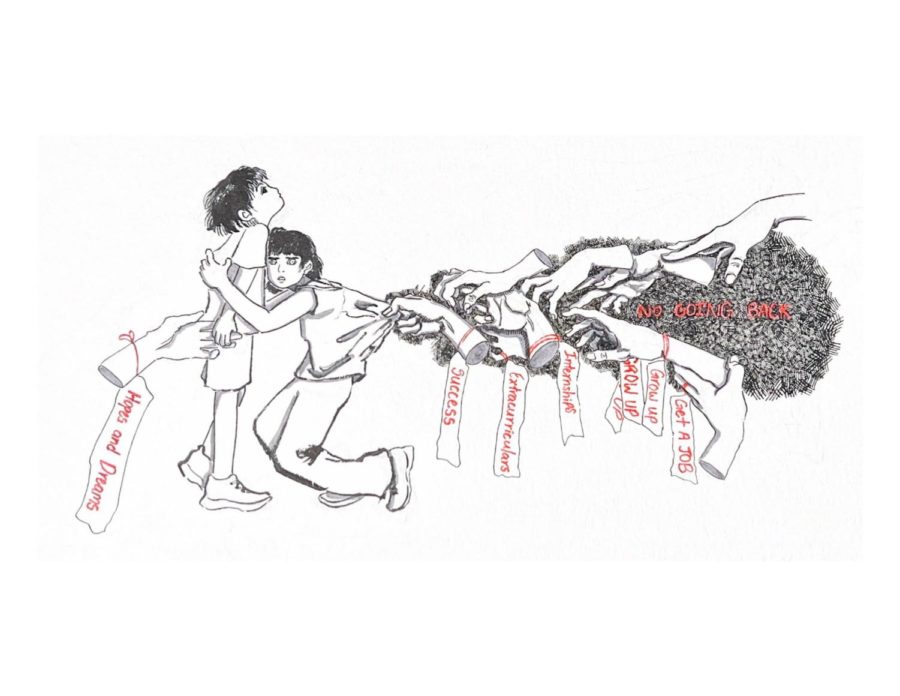“It was like a car crash,” everyone has said, probably, at some point. “I just couldn’t look away.” This is something that we say to explain that we are ashamed to be curious about tragedy in the same way that we are curious about other things. It makes sense. On a certain level we tend to agree that there is nothing that can make a tragedy more painful for someone close to it than the sight of a thousand noses smeared against the glass—a reminder that the rabble is always eager for a glimpse. It is why high profile public figures call for privacy in times of tragedy, and why those calls are generally respected, if not always obeyed.
It’s an odd phrase, really—it seems to say that the natural, and perhaps only, response to witnessing a disaster is shameless ogling. But there’s a grain of truth to that. Some of us, as soon as we obtain news of a tragedy, release ourselves onto the Internet scene like drug-detecting German shepherds into a dealer’s apartment, devouring every speculative scrap of pseudo-news we can get our paws on.
I suspect we are the definitive, if furtive, majority, and I also suspect that the drug-sniffing-dog mindset is less crude and animalistic than it seems. Why do we assume that our unreserved curiosity about tragedy is necessarily morbid, a part of our worse nature, an ugly remnant of an instinctual schadenfreude? I think that’s too cynical—and too easy. I think there’s something else.
It all comes down to our stubborn and absolutely unfounded idea that there is a way that things can and should work here on this planet. For example, speaking of car crashes: I rode in cars for fourteen years of my life before I realized how fragile this whole business of automotive transportation is. Like everyone, I had of course taken note of the tiny white crosses that littered roadsides. But the record was undeniable: In all the time I had ever spent in a car, nothing awful had ever happened to me. Static, everyday experience will bamboozle anyone into feeling comfortable. It will teach anyone to understand safety and pain in a way that locates danger away from herself.
It was late at night, south of Atlanta somewhere. We were rear-ended fairly violently. No one was injured. Unable to find a hotel, we spent the night in a motel parking lot. I didn’t sleep. I quivered in the backseat. I was shocked, but mostly I was baffled at my shock. I rehearsed the logic over and over: “I am not an idiot. I know that these things happen. I know that I am a person to whom things can happen. Why does this feel like betrayal?”
The answer, of course, is that the illusion of safety is not one that we choose. It is one that builds like grime, slowly, for however many years that pass without disaster. And, when it is shattered, the entire sensibility of the world seems to shatter with it.
Who wouldn’t want to figure out why? Who wouldn’t be willing to devour article after article, re-watch YouTube videos, skip from Wikipedia entry to Wikipedia entry? Who wouldn’t want to find an explanation that will make us feel less as though we have failed, despite all our advances, at creating the sort of world that shares our system of punishment and reward?
It has nothing to do with voyeurism. It has to do with the fact that we are the sort of people who would like to believe in justice and our ability to impose it on our environment. When the flimsiness of that illusion and the futility of that project are revealed to us by some twist of fate or another, our instinct is to bandage the wounds. We accumulate information, craft preventative solutions—reassert our power over accidents. Of course we want to root out the causes of these discrepancies in the worldview that keeps us sane, the one that keeps us climbing out of bed every morning and entering into a world of unpredictable and unthinkable risk. It’s a kind of nobility. It manifests itself clumsily and grotesquely, and it may be impolite to stare. But it isn’t immoral—rather, it lays bare the grip that a commitment to morality has on us all.
Emma Thurber Stone is a second-year in the College.








